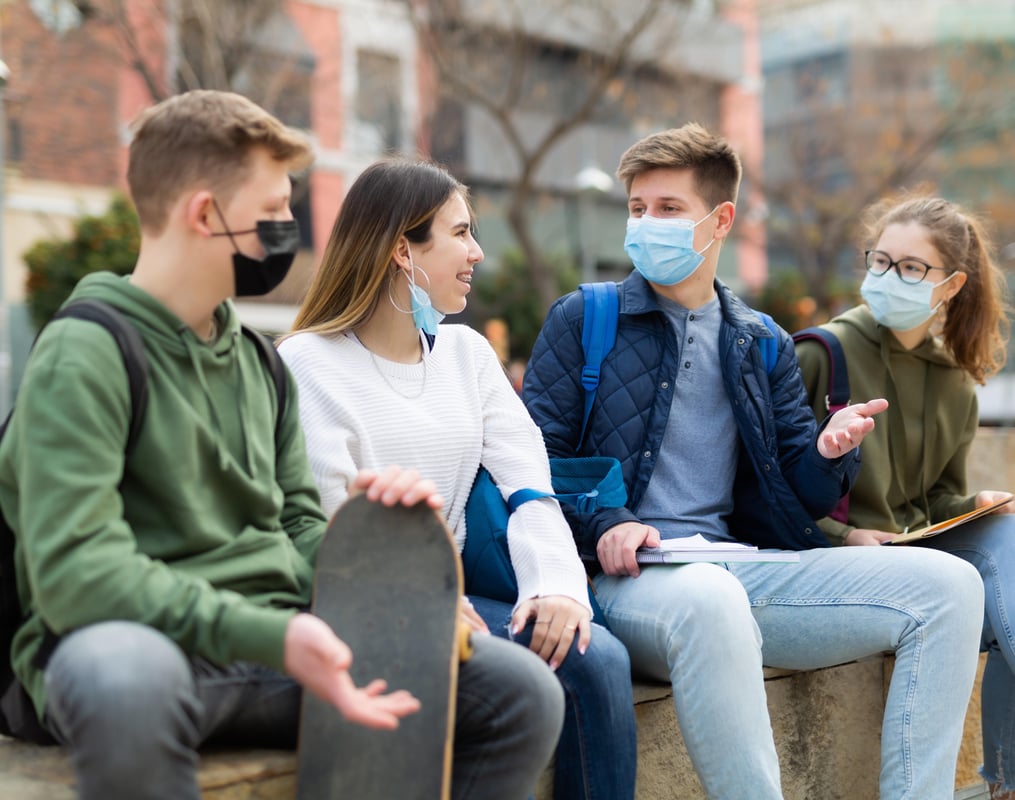3 Factors Helped Teens Stay Mentally Healthy During Pandemic

TUESDAY, Jan. 25, 2022 (HealthDay News) -- Support from family and friends, along with exercise and sufficient sleep, have helped protect teens' mental health during the pandemic, new research shows.
The study also found that teen girls have been more likely than boys to suffer mental distress during the pandemic.
For the study, researchers analyzed data gathered from more than 3,000 participants, aged 11 to 14, in the Adolescent Brain Cognitive Development (ABCD) study — the largest long-term study of brain development and child health ever conducted in the United States — before and during the early months of the pandemic.
The factors most strongly associated with protecting teens against stress, anxiety and depression were positive relationships (such as talking about plans for the coming day with parents or participating in family activities) and healthy behaviors, including physical activity and adequate sleep.
Significant factors linked with poor mental health were more screen time (including social media and video games) and witnessing racism or discrimination in relation to the pandemic.
Girls and teens who had existing mental health or sleep problems when the pandemic began were particularly vulnerable to the mental health effects of the pandemic.
"Early adolescence is a time when youth are already experiencing rapid change physically, emotionally and socially, and the COVID-19 pandemic has caused immense disruption to this sensitive stage in life," said Dr. Nora Volkow, director of the U.S. National Institute on Drug Abuse (NIDA), which funded the research.
"This study helps us understand how modifiable lifestyle factors affect the mental health and well-being of adolescents, and it can inform the development of interventions to protect youth during a major life stress. This is important now, as we continue to grapple with the pandemic, and also in future crisis response at the local or national level," Volkow added in an NIDA news release.
The study was published Jan. 24 in the Journal of Adolescent Health.
"Focusing on what you can do to support young people, like maintaining as much of a routine as possible, walking at least 10 minutes a day, and strengthening family relationships, really matters during times of stress," said Fiona Baker, director of the Center for Health Sciences at SRI International in Menlo Park, Calif., and principal investigator of the ABCD study site at SRI.
More information
To learn more about support for teens and young adults during the pandemic, go to the U.S. Centers for Disease Control and Prevention.
SOURCE: U.S. National Institute on Drug Abuse, news release, Jan. 24, 2022
Related Posts
La terapia vibratoria podría ayudar al cuerpo y la mente de las personas con EM
JUEVES, 11 de noviembre de 2021 (HealthDay News) -- Los pacientes con esclerosis...
¿Se siente ansioso? Quizá el ejercicio pueda aliviarlo
LUNES, 13 de septiembre de 2021 (HealthDay News) -- La prevención de la ansiedad...
Biden Plans to Send 400 Million N95 Masks to Americans for Free
WEDNESDAY, Jan. 19, 2022 (HealthDay News) -- The Biden administrations plans to...
Common Plastics Chemical Tied to Higher Diabetes Risk in Women
THURSDAY, Feb. 9, 2023 (HealthDay News) -- Chemicals found in plastic personal...
